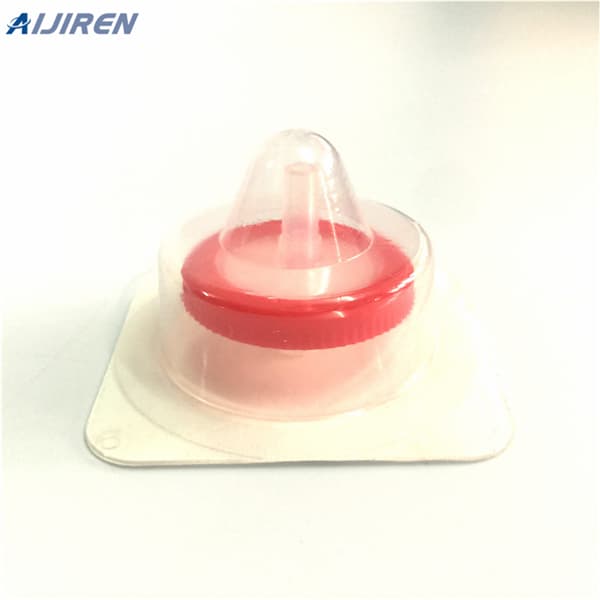
The information in this chart has been supplied to Cole-Parmer by other reputable sources and is to be used ONLY as a guide in selecting equipment for appropriate chemical compatibility. Before permanent installation, test the equipment with the chemicals and under the specific conditions of your application. Ratings of chemical behavior listed
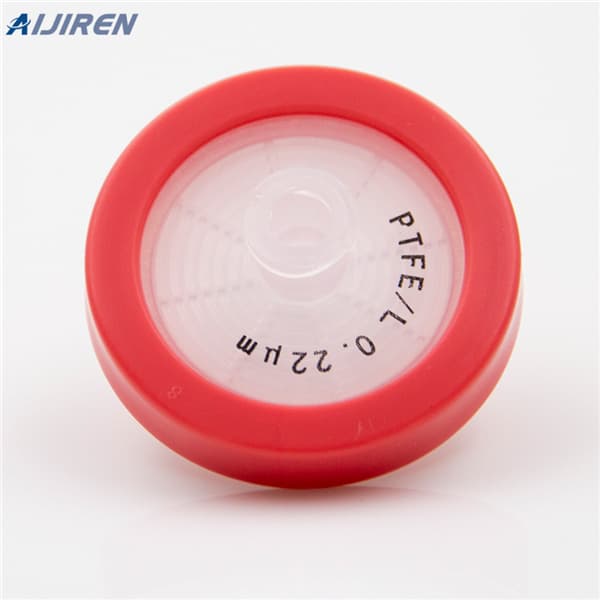
There are so many solvents and syringe filter/membrane materials that it can be tough to remember which combinations are safe and which are corrosive. These tables show five common syringe filter materials -- Cellulose Acetate (CA), Nylon, PES, PTFE, and PVDF -- and their compatibilities with 75 common solvents. Compatibility Tables Compatibility Grades
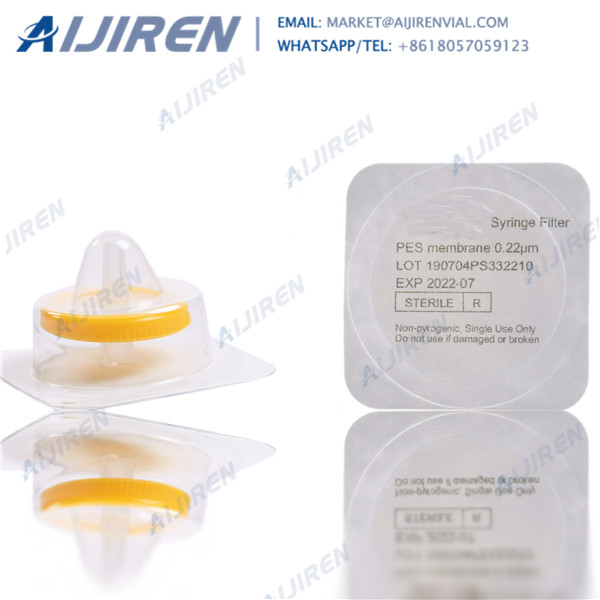
Nalgene Chemical Compatibility - Bottles & Containers. Key. E - No damage after 30 days of constant exposure. G - Little or no damage after 30 days of constant exposure. F - Some effect after 7 days of constant exposure. N - Immediate damage may occur. Not recommended for continuous use.
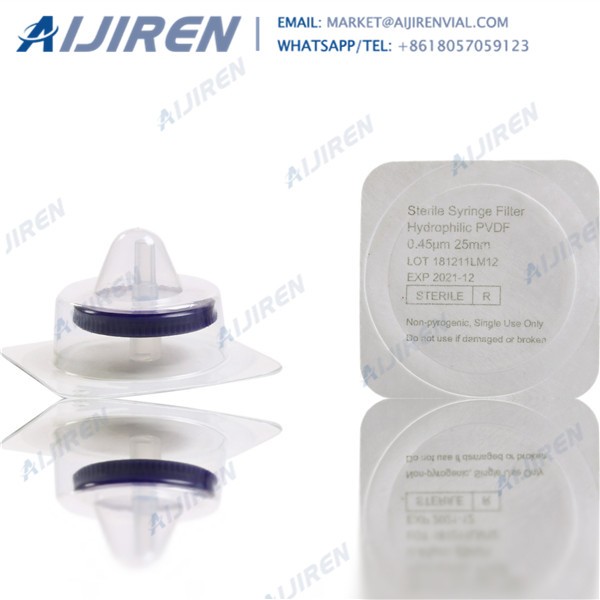
Apr 25, 2012 · Rough filtration: We first filter through a coffee filter to remove the gross material and then through a Whatman #1 lab filter, using a vacuum assist, to save time. Micro filtration: Once it has been rough filtered, we then follow up by polishing it at 0.2 microns, using a 0.2 micron syringe filter. It has a Luhr fitting, and screws on the
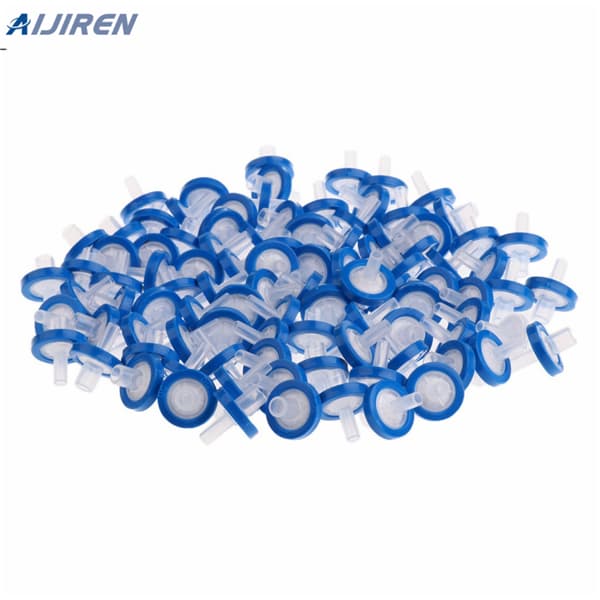
Chart below shows the Chemical Compatibility of various types of syringe filters with some commonly used chemicals. All types of membrane filter products were exposed to specified chemicals/reagents for 3 days at 25 0 C. Upshot: All products retain its Integrity after Chemical compatibility Test.
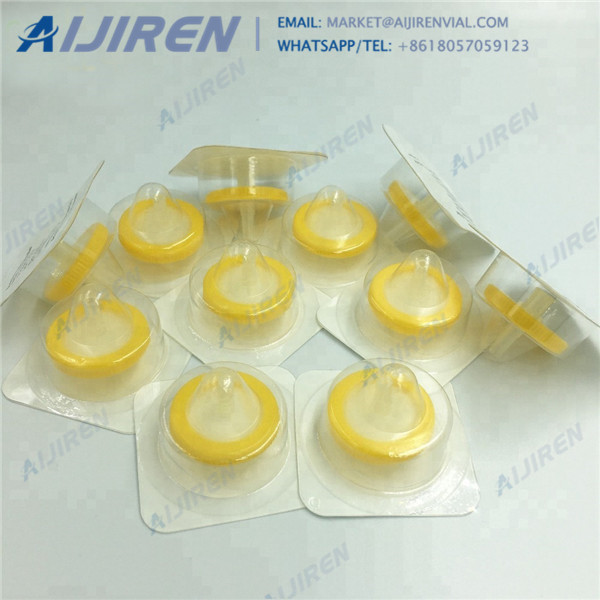
Clear PTFE (Hydrophobic) Syringe Filters, 0.45 µm, 4 mm (200/Pack) have broad chemical compatibility and high pH resistance. These are versatile filters for use with aggressive organic solvent-based solutions and are especially ideal for HPLC sample preparation. The pure polypropylene housings are. Related Products: 0.45 Ptfe Filter.
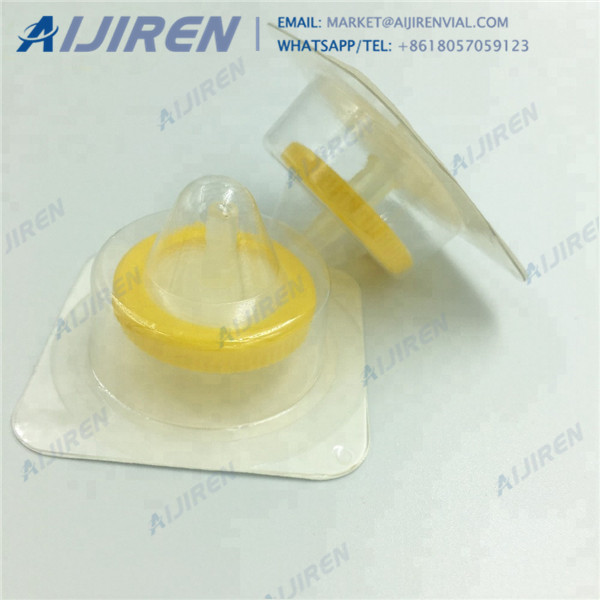
PTFE (Teflon) Membrane Filters PTFE (Polytetrafluorethylene). The hydrophobic nature of teflon and its broad chemical compatibility make it the filter of choice for filtration of air and gases, for use as vents and for clarification of acids, bases and solvents.
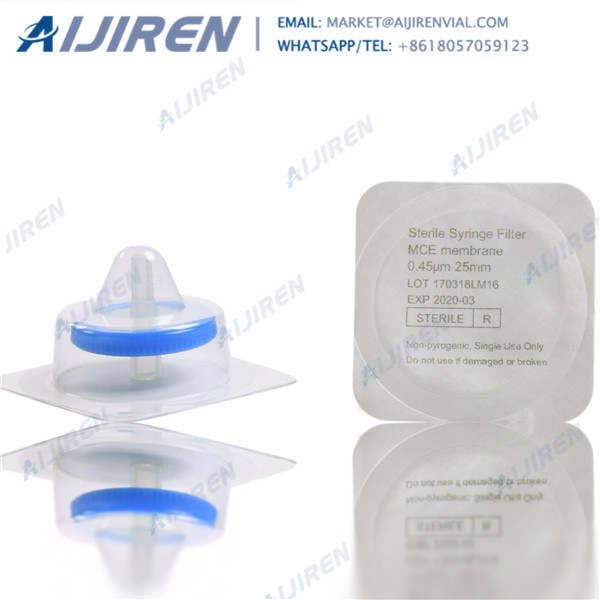
What Chemicals are Compatible with PTFE and Teflon®*? PTFE is the most versatile plastic in terms of chemical compatibility. Highly resistant to most acids, alcohols, detergents and solvents. Ideal for use with reactive and corrosive chemicals. The melting point of PTFE1 is 600°K (327°C / 620°F).
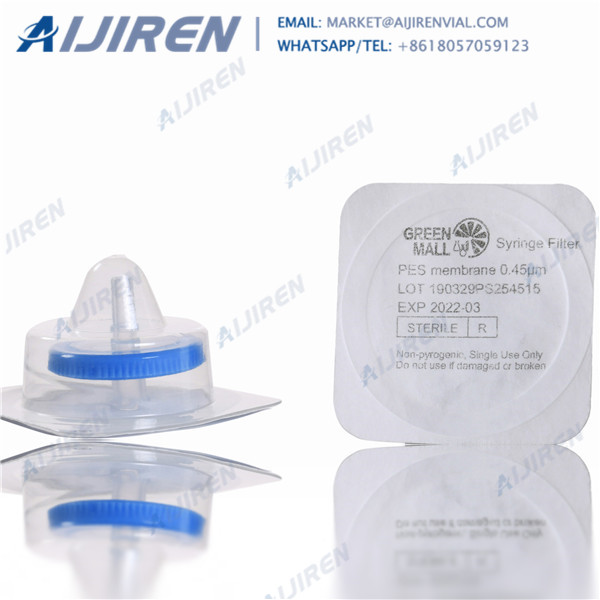
0.22 micro nylon mushroom syringe filter whosales 47mm teflon mushroom syringe filter Waters solvent compatibility mushroom syringe filter China mushroom syringe filter type USA high performance ptfe mushroom syringe filter Pall Acrodisc unlaminated pes mushroom syringe filter USA
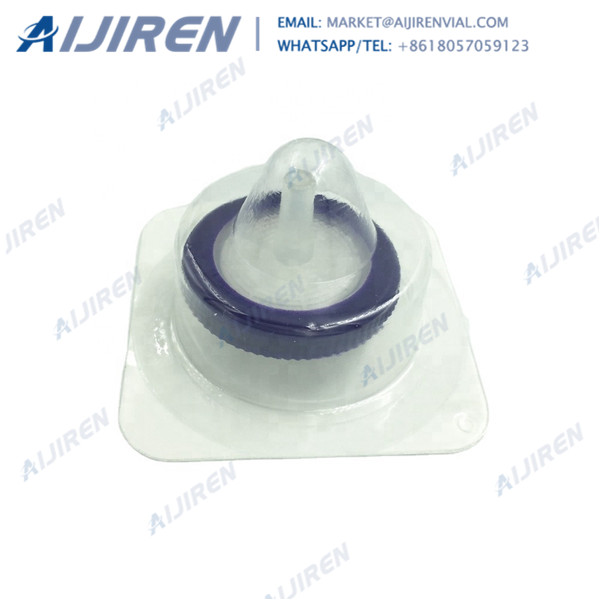
Syringe Filters – Regenerated Cellulose (RC) Hydrophilic membrane with very low adsorption. For aqueous and organic/aqueous liquids, i.e. polar and medium polar sample solutions. The non-specific binding capacity for proteins is 84 µg/filter. The non-specific binding is low, making it perfect for the filtration of biomolecules.
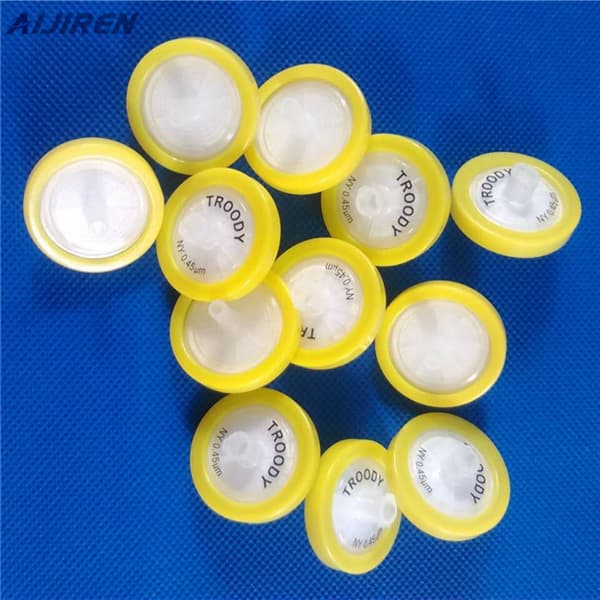
GVS Filter Technology Syringe FilterTeflon Syringe Filter,0.20 µm Pore Size, 25 mm Membrane Diameter, 500 pieces per box.Polytetrafluoroethylene (PTFE)Hydrophobic membrane. Ideal for filtration of strong acids and aggressive solutions, venting applications, phase separations, aerosol samplings. Chemically and biologically inert. Superior chemical resistance. Can withstand high temperatures
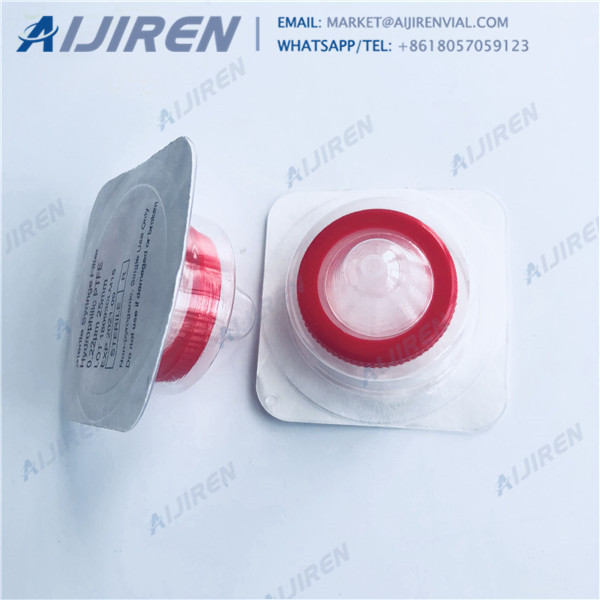
CHROMAFIL® Syringe Filters - Teflon (PTFE) Polytetrafluorethylene Hydrophobic membranes For nonpolar liquids and gases Extremely resistant towards all kinds of solvents as well as with strong acids or bases This membrane can be made more hydrophilic by first pre-wetting with alcohol followed by flushing with water .tg {border-collapse:collapse;border-spacing:0;margin:0px
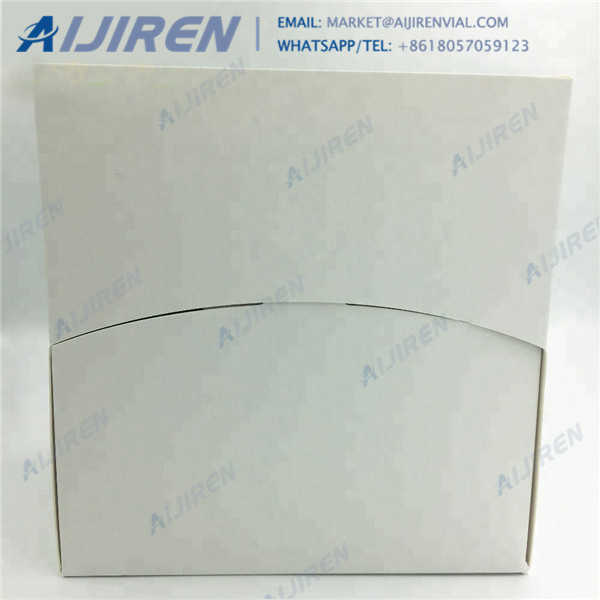
Teflon tube packaging assures complete release of certified. These syringe filters are recommended for "pharmaceutical" grade HPLC Sample Prep & Dissolution Testing when GLP and GMP are required. Manufactured with proprietary and various membrane types in 25mm, 13mm or 4mm polypropylene housings.
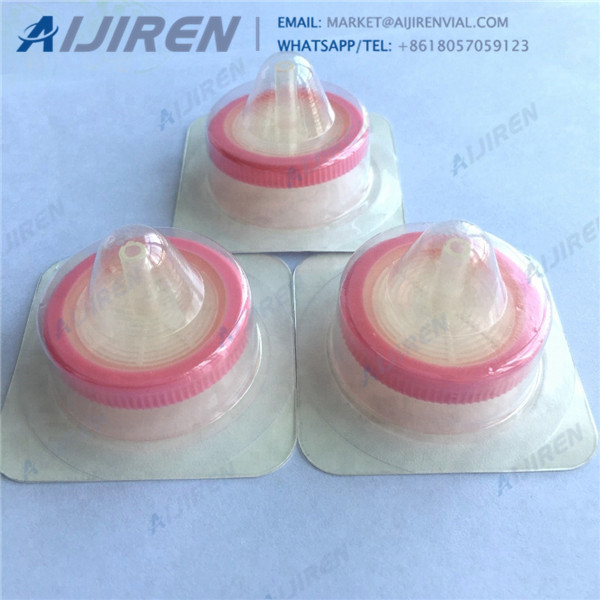
Nylon and PTFE (Teflon) membranes have broad chemical compatibility and can be used to filter most HPLC and GC fluids/solvents. PTFE can also be used to filter air or gases. Nylon is good for DMSO. PES and CA/SFCA membranes are compatible with non-alcoholic aqueous solutions and
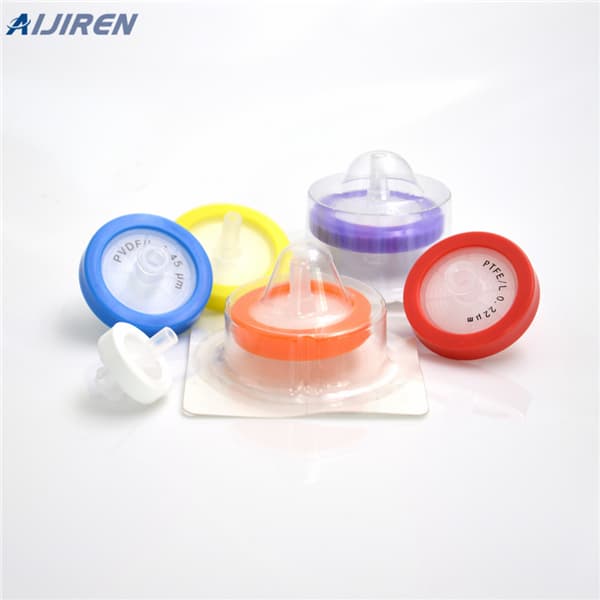
CHROMAFIL disposable syringe filters are used for filtration of suspended matter from liquid samples (1–100 mL). The filter can be used for sample preparation for HPLC, GC, ICP, AAS, TOC, DOC, IR, NMR, photometry, and spectroscopy samples to filter out contaminants and extraneous particles that can affect analytical results or clog liquid pathways, frits, etc.